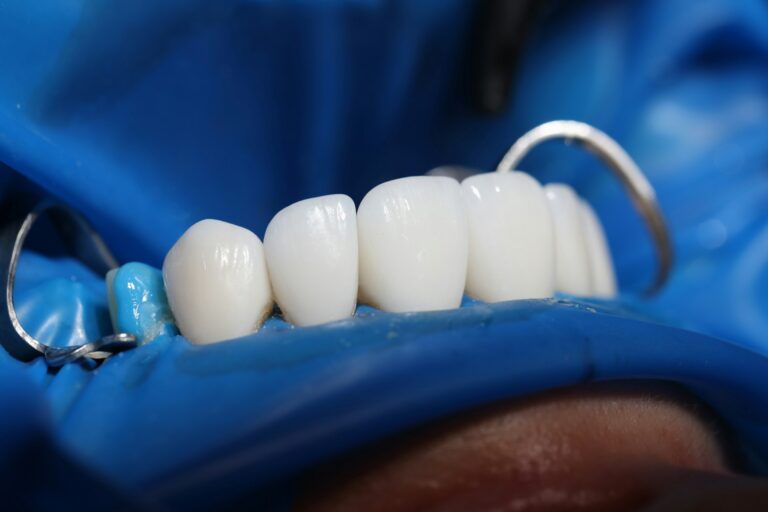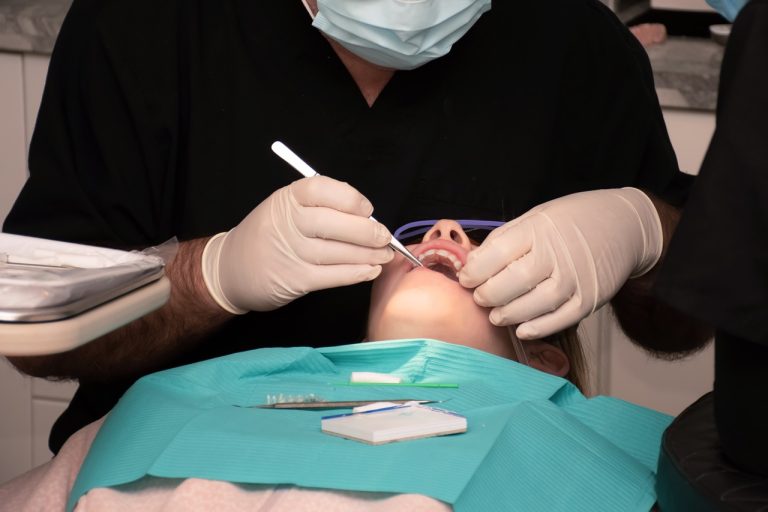If you ever find yourself running your tongue over your teeth and noticing an unusual roughness, or perhaps spitting out a pinkish mixture after brushing your teeth, you might be dealing with a case of periodontal disease.
Periodontal disease, also known as gum disease, is a common oral health issue that too often goes undetected and untreated. It’s often sneaky, creeping up on us without loud, obvious symptoms. But, if you know what to look out for, you can catch it early and nip it in the bud. The causes can be varied, from certain lifestyle habits like smoking or a poor diet, to underlying health conditions such as diabetes. Symptoms can range from slight gum bleeding to loose teeth, and everything in between.
At Colorado Gum Care, we’re committed to keeping your teeth firmly rooted and your smile bright. Our team of seasoned professionals is on a mission to educate you on the causes, symptoms, and treatment of periodontal disease. We believe that the more you know, the better equipped you’ll be to maintain your oral health, and we’re here to help you every step of the way.
Causes of Periodontal Disease
Periodontal disease primarily results from the buildup of plaque on the teeth and gums. Plaque is a sticky film of bacteria that continuously forms on the teeth. If not properly removed through regular dental hygiene practices, plaque can harden into calculus or tartar, and eventually lead to gum inflammation and periodontal disease. Other causes and contributing factors for periodontal disease can include:
1. Poor oral hygiene: Neglecting regular brushing, flossing, and dental checkups can significantly increase your risk of developing periodontal disease.
2. Tobacco use: Smoking or chewing tobacco can damage gum tissues and weaken the immune system, making it more difficult to fight off gum infections.
3. Hormonal changes: Fluctuating hormone levels during pregnancy, menopause, or puberty can make the gums more sensitive and susceptible to gum disease.
4. Chronic health conditions: Conditions such as diabetes, cardiovascular disease, and rheumatoid arthritis can increase the likelihood of developing periodontal disease.
5. Genetics: Some individuals may be genetically predisposed to gum disease, making them more susceptible to developing the condition.
Symptoms of Periodontal Disease
Recognizing the early warning signs of periodontal disease can help you seek timely professional care and prevent the condition from worsening. Some common symptoms of periodontal disease include:
1. Red, swollen, or tender gums
2. Bleeding gums during or after brushing
3. Persistent bad breath or a bad taste in the mouth
4. Receding gums or pockets forming between the teeth and gums
5. Loose or shifting teeth
6. Changes in the way teeth fit together when biting
If you notice any of these symptoms, it is crucial to schedule an appointment with our dental professionals at Colorado Gum Care for a thorough evaluation and proper treatment.
Treatment Options for Periodontal Disease
Our dental professionals in Broomfield are highly skilled in diagnosing and treating periodontal disease using a variety of treatment methods. Depending on the severity of your condition, your treatment plan may involve one or more of the following options:
1. Professional Dental Cleaning: During regular dental checkups, our dental professionals will perform a thorough cleaning, removing plaque and tartar buildup from above and below the gum line. A professional cleaning can help control early-stage gum disease (gingivitis) and prevent progression to more severe periodontal disease.
2. Scaling and Root Planing: This deep cleaning procedure, also known as non-surgical periodontal therapy, involves removing plaque and tartar deposits from the root surfaces and smoothing the roots to promote gum reattachment and a healthier oral environment.
3. Periodontal Maintenance: Following initial gum disease treatment, our dental professionals may recommend regular periodontal maintenance appointments to clean hard-to-reach areas and monitor your oral health to prevent disease recurrence.
4. Surgical Treatment: In advanced cases of periodontal disease, surgical interventions like pocket reduction surgery, gum grafting, or bone grafting may be necessary to protect and restore your oral health.
Preventing Periodontal Disease
Prevention is always better than cure, and the same holds true for periodontal disease. By adopting proper oral hygiene practices, you can effectively minimize your risk of developing gum disease. Here are some essential preventive measures to maintain excellent oral health:
1. Brush your teeth at least twice a day using a soft-bristled toothbrush and fluoride toothpaste.
2. Floss daily to remove plaque and food particles from between the teeth and along the gum line.
3. Use a therapeutic mouthwash, as recommended by our dental professionals, to help control plaque bacteria and support gum health.
4. Schedule regular dental checkups and cleanings every six months, or more frequently if advised by our dental professionals at Colorado Gum Care.
5. Eat a balanced diet rich in nutrients and avoid excessive consumption of sugary foods and beverages.
Protect Your Oral Health and Smile at Colorado Gum Care
Periodontal disease is a prevalent oral health concern, but it can be successfully managed and prevented with proper care and professional support. At Colorado Gum Care, our dental professionals are committed to helping you achieve and maintain optimal oral health, empowering you with the knowledge and guidance necessary to prevent gum disease and protect your smile.
Schedule a consultation with our dental professionals in Broomfield today to discuss your gum care needs, evaluate your periodontal health, and embark on a journey toward a healthy, confident smile. Let us help you safeguard your oral health and overall well-being by addressing and preventing periodontal disease!







